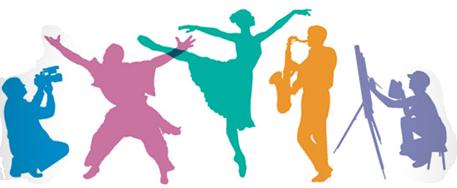Expressive Therapies
Expressive Therapies uses a range of self-discovery processes to bypass the logical mind and tap into that world we know exists but cannot seem to comprehend consciously (unconscious mind). This experiential and holistic way of working involves more than ‘just talking about the problem’, and provides the opportunity for real and lasting change. It is based on the belief that each person has their own inner wisdom, and that the expert on who we are as an individual and what we need is actually inside us.
This allows a client to not just express in words a particular issue, but to feel the energy of their inner experience. When we connect with and really feel this energy we become open to new ways of understanding the problem. This method allows a feeling of release, insight, increased energy and a sense of well being and resolution.

What is Expressive Therapies?
Expressive Therapies (ET) is a blend of expressive personal growth (development) and counselling (therapeutic) methods, uses an invitational, self-discovery approach, support the emotional healing of children and adults. It provides actiity-based modalities that bring integration through a re-connection between body, mind and feelings.
Modalities of Expressive Therapies
Symbol work, play, art, music, writing,bioenergetics, dance, worksheet, personal narratives, card, sculpture, role-play etc..
The Effectiveness of Expressive Therapies
1. Intra-personal skills
Primarily for relating to understanding of self, self-awareness through focusing on emotions, observing positive and negative beliefs in self.
2. Kinaesthetic components
Increasing awareness of the messages of the body and responding to report of somatic symptoms is a significant movement in helping clients learn the skills of exploring internal changes.
3. Interpersonal skills in group work
Learning how to deepen relationships with others and understanding some of the dynamics of a group.
4. Transformative self-learning using symbol
Concertizing and expressing internal states using symbolic forms. The use of symbols, role-play, fantasy arts, along with self-discovery worksheets that engage clients in using metaphor to enhance self-learning and communication.
5. Integration activities and closure
Supporting a connection between mind and body and also reinforce the boundaries between ‘process’ and everyday relating.
6. Transpersonal skills
The use of art, symbols and metaphor can help a client develop language for existential questions. Skills to recognize, experience, formulate and share metaphysical concepts.
This allows a client to not just express in words a particular issue, but to feel the energy of their inner experience. When we connect with and really feel this energy we become open to new ways of understanding the problem. This method allows a feeling of release, insight, increased energy and a sense of well being and resolution.

What is Expressive Therapies?
Expressive Therapies (ET) is a blend of expressive personal growth (development) and counselling (therapeutic) methods, uses an invitational, self-discovery approach, support the emotional healing of children and adults. It provides actiity-based modalities that bring integration through a re-connection between body, mind and feelings.
Modalities of Expressive Therapies
Symbol work, play, art, music, writing,bioenergetics, dance, worksheet, personal narratives, card, sculpture, role-play etc..
The Effectiveness of Expressive Therapies
1. Intra-personal skills
Primarily for relating to understanding of self, self-awareness through focusing on emotions, observing positive and negative beliefs in self.
2. Kinaesthetic components
Increasing awareness of the messages of the body and responding to report of somatic symptoms is a significant movement in helping clients learn the skills of exploring internal changes.
3. Interpersonal skills in group work
Learning how to deepen relationships with others and understanding some of the dynamics of a group.
4. Transformative self-learning using symbol
Concertizing and expressing internal states using symbolic forms. The use of symbols, role-play, fantasy arts, along with self-discovery worksheets that engage clients in using metaphor to enhance self-learning and communication.
5. Integration activities and closure
Supporting a connection between mind and body and also reinforce the boundaries between ‘process’ and everyday relating.
6. Transpersonal skills
The use of art, symbols and metaphor can help a client develop language for existential questions. Skills to recognize, experience, formulate and share metaphysical concepts.





